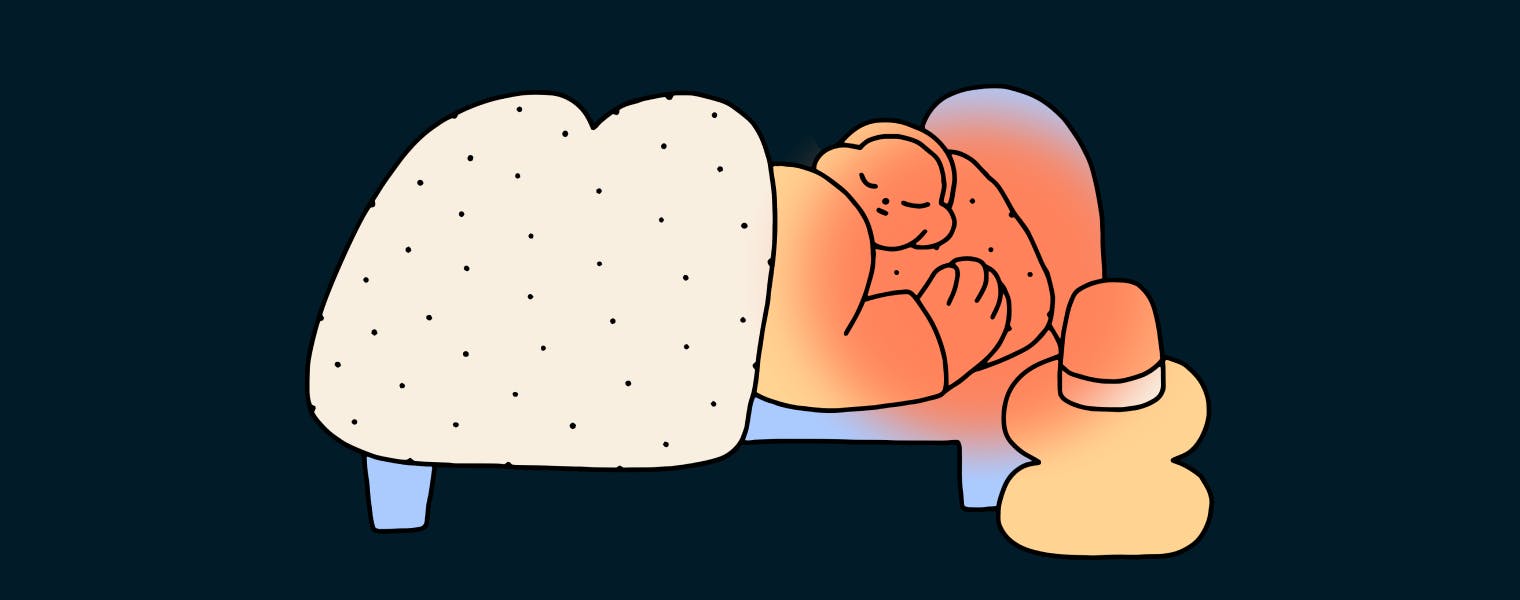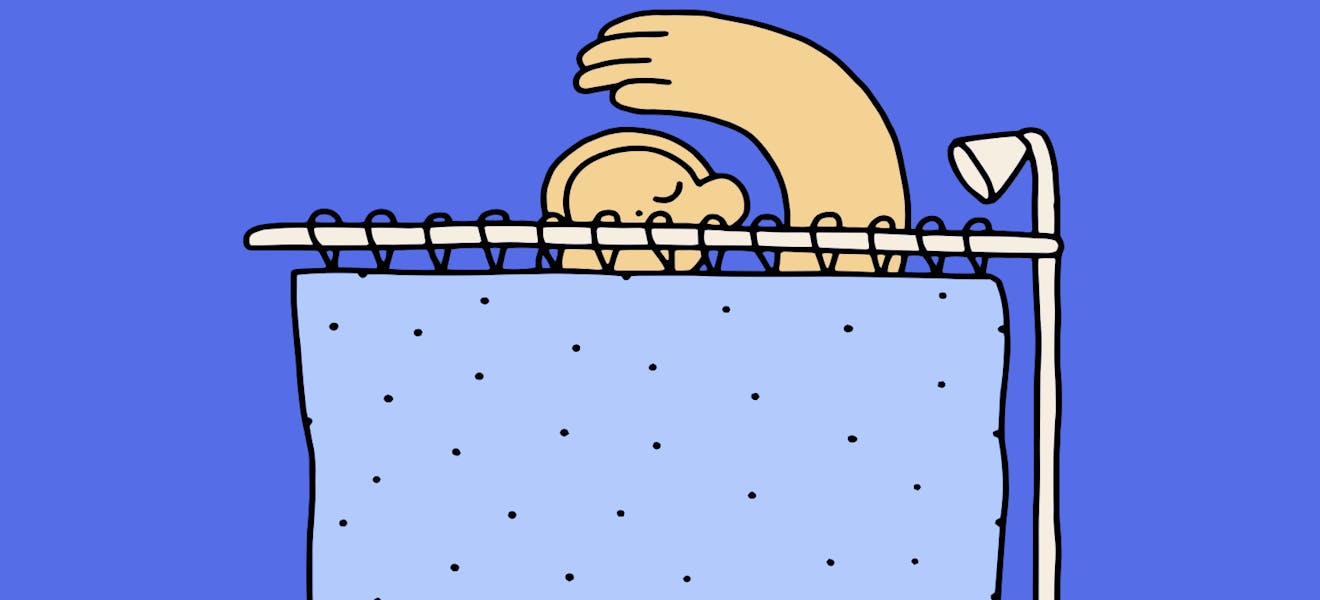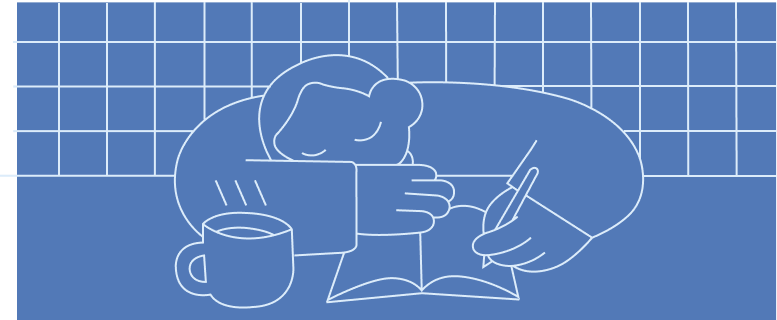Trouble Sleeping in a New Place? How to Prepare for a Night in Your Childhood Bed
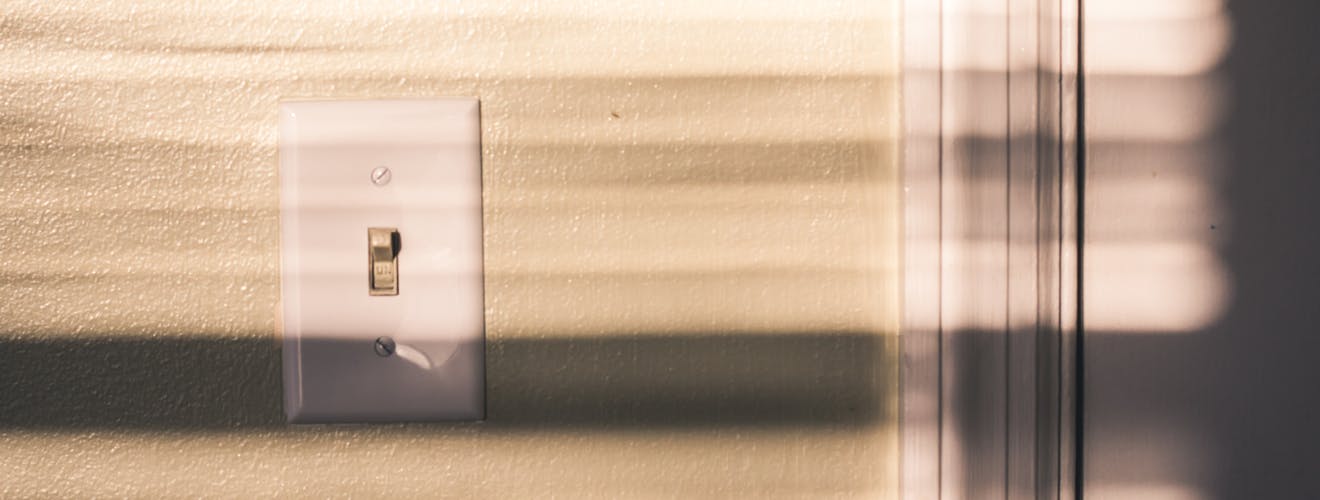
If only we could cap our holiday stress at awkward office parties and unfortunate family reunions. Regrettably, we can't. Whether it's keeping up with demanding travel schedules, or settling into uncomfortable accommodations, disrupted sleep often finds its way into the holiday season. If you're headed home to celebrate this special time of year with friends and family, be sure to keep reading. Below, we've outlined a few tips for sleeping in a new place. Whether it's your childhood bedroom, or somewhere less familiar, we've got you covered.
Why Do People Have a Hard Time Sleeping In a New Place?
It's not uncommon to have trouble getting some shut eye in a new sleep environment. Scientists have even come up with a name for it: It's called the "first night effect" and it's a protective mechanism used to keep us safe from potential threats.
These findings come out of a study conducted at Brown University, where sleep researchers measured the brain wave patterns of a group of students over a period of two nights, one week apart.
Before we go further, it's important to note that our brains go through three distinct stages of activity when we sleep. The deepest and most restorative stage is marked by slow wave activity in the brain. When observing the sleeping students, researchers noticed that only half their brain made it to this stage. It wasn't until the second night of the study that both brain hemispheres achieved slow wave sleep.
The part of the brain that remained more active on the first night (the left hemisphere) was also able to detect odd noises throughout the night. Similar findings have been detected in birds and marine mammals: One hemisphere sleeps while the other stays active and alert after dozing off. That way, they can make up for the risks they are subject to when asleep.
While the first night effect is certainly useful for animals out there in the wild, us humans may have outgrown our need for such a defense—especially when the biggest threat we're likely to encounter is an intrusive parent asking if we got enough water before bed.
How to Overcome Trouble Sleeping in a New Place
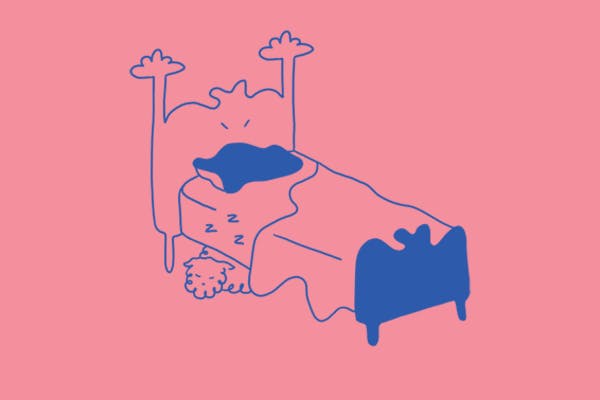
Whether you're staying at home during the holidays or are settling into a new place, it's important to preserve your sleep quality during your time off. Listed below are a few things to keep in mind when away from home.
Choose a Place You Feel Safe In
Whether you're staying with your folks or at a hotel, stick to an environment that feels somewhat familiar to your bedroom at home. This can ease the anxiety associated with unfamiliar surroundings.
Create a Familiar Routine
Trick your brain into falling asleep fast by sticking to a familiar routine. This can help signal that it's time for bed, prompting your body to rest and relax.
Minimize Sleep Disruptors
Many things can disrupt your sleep in a new environment. It's your job to block potential sleep disruptors like intrusive sounds or bright lights. A sleep mask or soothing balm can do a lot to minimize these distracts and secure some quality sleep.
Sleep Tips For Sleeping In Your Childhood Bed
As established, people tend not to sleep as well in an unfamiliar environment. If you're planning to spend the night sleeping anywhere other than home, be sure to keep reading. We've put together a few ways to prepare for a night out at your parent's house.
Bring Your Own Pillow
Trinkets from your past can be distracting. Even the sound of Mom's voice echoing down the hall can be enough to keep you up at night. If you can, bring some comforts from home to make that first night back a little easier. Both the smell and feel can help trick the body into thinking that you’re back home in your usual environment.
Keep Up With Your Usual Sleep Hygiene
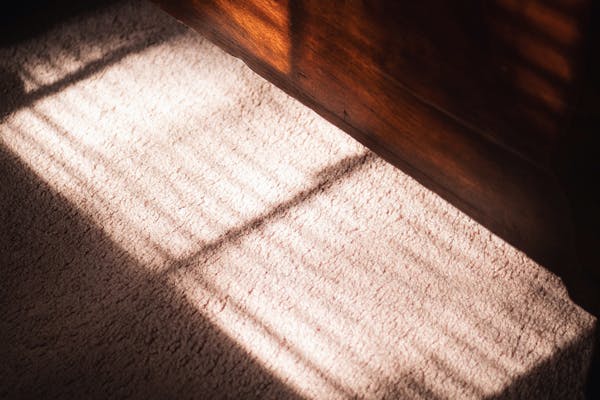
As mentioned above, the brain loves routine. Even if you're staying somewhere else, you can stick to your usual schedule. Whether that means putting on a face mask, taking a warm shower, or reading a few pages out of your book, these things can help you achieve better sleep.
We should also note that basic sleep hygiene is important to maintain—make sure you avoid electronics and caffeine before bed. Clean sheets and a dark environment won't hurt, either.
Try Out a Weighted Blanket
Weighted blankets can help calm the nervous system. Thanks to their snug and cozy feel, they also help provide feelings of comfort and a sense of security, which the brain needs to fall asleep.
Take Melatonin
Whether you're jet lagged or stressed out from all the holiday travel, you'll probably welcome whatever sleep hacks you can get your hands on. Taking melatonin is a popular choice. These naturally formulated sleep supplements can help you fall asleep fast and wake up without the morning-grogginess that many over-the-counter alternatives introduce.
Use White Noise
It could be the television playing downstairs, a creaky floorboard, or loud voices traveling in from the other room. Either way, unfamiliar sounds can make it extremely difficult to fall asleep. Consider downloading a white noise app to help block out the sound before bed.
Wrapping Up
Getting a good night's sleep shouldn't be a nightmare. If you want to achieve the deep sleep you deserve, we've got you covered. Our fast-acting and long-lasting sleep aid herbal supplements are made from neutral hemp-derived ingredients. So, you can cash in on quality sleep without any unwanted effects.

